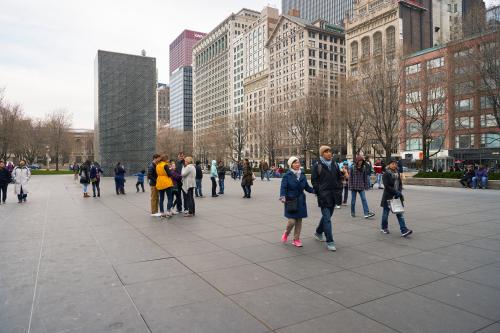President Barack Obama’s speech yesterday once again laid out a smorgasbord of policies for how to reform U.S. immigration policy. While he jested about moats and alligators along the border in El Paso, President Obama has been beleaguered by immigration reform, as was his predecessor, but the problem may not be with the occupant of that office.
During and since the collapse of the Bush administration’s failed 2007 immigration overhaul effort, the debate has typically been framed by two polarized and opposing policy strategies: “enforcement-first” versus “comprehensive.”
In the enforcement camp, proponents focus on the rule of law, strengthening border security, keeping out illegal immigrants, and new strategies for worksite verification. With this accomplished, only then, per this view, should we start the discussion about other issues, including legalizing the millions of immigrants who are in the United States illegally.
Comprehensive reform includes all of the above measures, but also focuses on changes to the immigration admissions system and an earned legalization program. This perspective emphasizes the point that in order to have a system that works properly all of these components must be operating at once. The biggest dividing line between the two positions is that the comprehensive reform camp supports a legalization program for immigrants who are already in the United States if they pass a background check, pay a fine and are working. Enforcement-first backers often morph into “enforcement only” supporters at this suggestion.
Members of Congress may be motivated by politics or otherwise believe deeply in taking one approach or the other toward reforming the nation’s immigration laws. But it appears the public believes in doing both.
A very recent survey by the Pew Research Center for the People and the Press showed that 72 percent of the American public supports providing a way for illegal immigrants currently in the country to gain legal citizenship if they pass background checks, pay fines and have jobs. Slightly more (78 percent) support stronger enforcement of immigration laws and border security. If you do the math, at least half of all Americans support both legalization and stronger enforcement.
But that’s the national picture. If you did the same poll state by state, metro by metro, county by county, you would find a lot of variation.
On enforcement, there are states such as Arizona and Georgia that want more than the federal government is offering and have proposed and implemented their own policies. There are other states like Illinois and New York that are unhappy about the Secure Communities Initiative, a federal enforcement program that requires local enforcement agencies to share biometric information for every detained person with federal immigration officials. (They are subject to deportation if they are in this country without authorization).
Then there is Utah. They have a state enforcement policy similar to Arizona’s but also have designed their own program that would allow immigrants who are illegally present to be certified to work in Utah.
State action is putting multiple pressures on federal lawmakers. In acknowledging Congress as perhaps the biggest obstacle in front of immigration reform, the president enlisted the American people to add their voices to the debate, giving out the White House web address to “sign up to help.”
Will we reach consensus on the best way to reform federal immigration policy across America? President Obama convincingly argued for a need to balance the strong and effective enforcement efforts with something for the other side. As he put it, “So, the question is whether those in Congress who previously walked away in the name of enforcement are now ready to come back to the table and finish the work we’ve started. We have to put the politics aside.”
Once Congress tires of arguing the same debates, perhaps we can talk sensibly and rationally about the best way to move ahead with immigration reform.



Commentary
Obama’s Immigration Smorgasbord
May 11, 2011